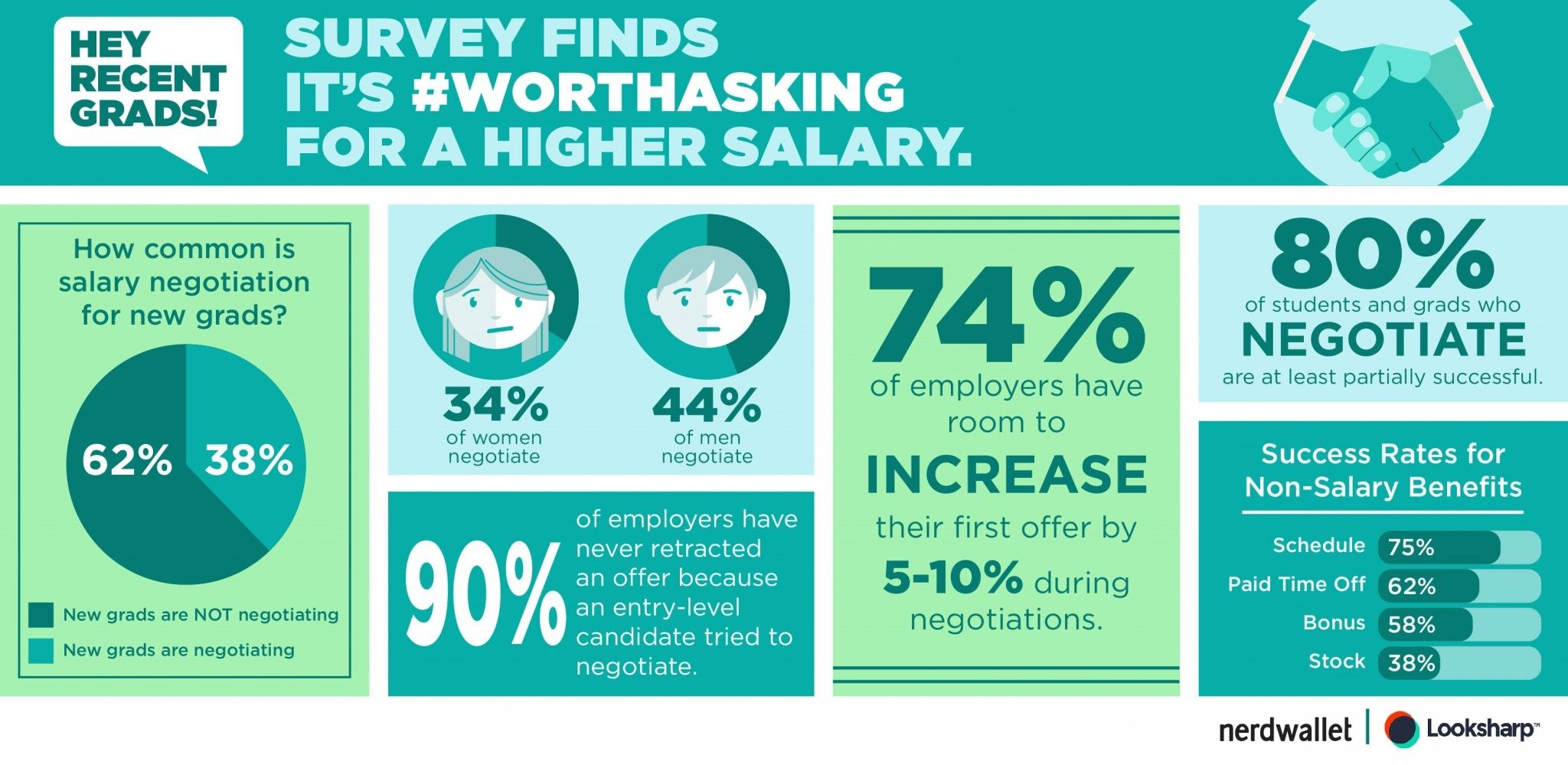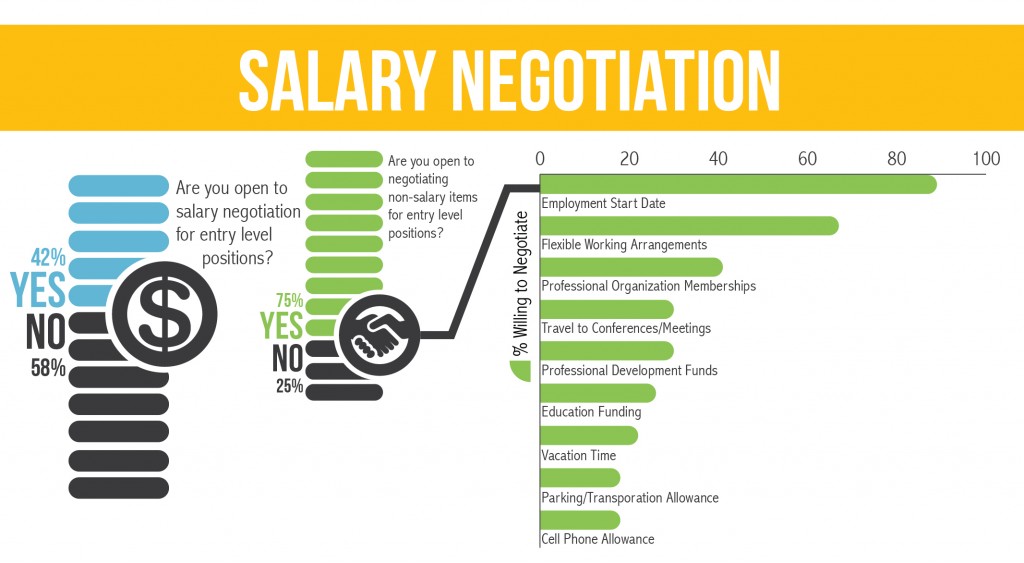Career Chronicles
Welcome to the New York Tech Career Chronicles Blog brought to you by Career Success and Experiential Education. Visit us for career advice, learn more about upcoming events and industry news as well as profiles of New York Tech alumni and students. We are here for you!
More Resources
How to Negotiate a Salary Offer
A lot of the guidance and counseling that we provide our students at NYIT’s Career Services comes from our own experiences and professional development.
Starting a career is like any project: a process where you will learn and grow. In a previous post, “What to Expect at Your First Job,” we shared some of our experiences and one of those included salary negotiation.
One study showed that most recent graduates are not negotiating salary at their first job.

If you’re in the middle of your first job search, know that there are websites like Payscale and Salary.com for job seekers to research salary profile databases based on location, company, and industry.
Once you have that information, you’ll be better prepared to negotiate a salary offer. Here are a few more tips to help you through the process.
Let the employer say a number first
Always let the employer provide a number first. If you say a number before they do, you run the risk of losing out what your employer is willing to offer. Remember to do your research and know your value before the interview.
You will also want to know how you will handle the situation when asked about your salary requirements. If asked, here are some responses you can provide:
(If it’s early in the interview process)
My main focus is finding a position that is a good fit for my skills and interests. I’m confident that we can come to an agreement on salary if this is a match.
I would like to learn more about this position before we discuss salary. Perhaps you can tell me what is budgeted for this position.
(If it’s the late in the interview process)
What is the hiring range for someone with my education and background for this position in your company?
Aim high
(If you absolutely must provide a number first)
Based on my research, I’m looking for a salary in the $70-80,000 range. Is that in line with what you have budgeted?
The number that you have in your head will be based on the research you have done prior to the interview. Most hiring managers will be expecting you to go higher on salary requirements. Pick the top of the salary range for the position based on your research, and start from there.
Thank them for the offer
One often-overlooked aspect of negotiating is getting things off on the right foot. You don’t want to seem ungrateful or uninterested in the job. Thank them for the offer and ask for some time to think it over. Then set up a time or date to discuss after you have given their offer some consideration. Remember, an initial offer will very likely be lower than what you want so don’t take it personally, this is all just part of the process.
Prepare the counteroffer
When preparing the counteroffer, it’s important to resell yourself to the employer on why you deserve a higher salary than their initial offer. Highlight your skills, education, and experience.
If your range is $70-80,000 and you were offered $60,000, you’ll have to think of a number in between their offer and your top range that you are comfortable with in order to form a counteroffer. There are also other factors to consider with a counteroffer.
Do you have other offers on the table? This can determine how aggressive you are in negotiating if you have another offer lined up and this one doesn’t work out.
Are they considering other candidates? If you don’t accept, do they have another candidate lined up?
What are some of the benefits that are being offered? The entire offer goes beyond salary and could include flexibility in your schedule, growth, tuition reimbursement, and other benefits that could make up for a salary lower than one you originally planned.
For example, the VCU Career Services team surveyed employers regarding their views on negotiation and found that many were open to negotiating other perks.

This is a great reminder to consider the big picture and to be open-minded during negotiation.
Remember, the goal is not to end with getting the highest salary possible, but to get an offer that you will feel good about at the end of the day.
Accept or decline
When you have the final offer in hand, it basically comes down to what you want. You should be prepared to walk away if you are not comfortable with the salary that you have been offered. At the same time, your feelings about the job should take priority.
Will you be comfortable making the salary that is offered for the next 2 years?
Will you enjoy this role at this company with the people that you have met during the interview process?
Does this job have good prospects? Is it a stepping-stone to your dream job?
If you can answer those questions, then the only thing left to do is accept or decline the offer.
Be honest and clear about what you want from your potential employer and most of all, yourself.